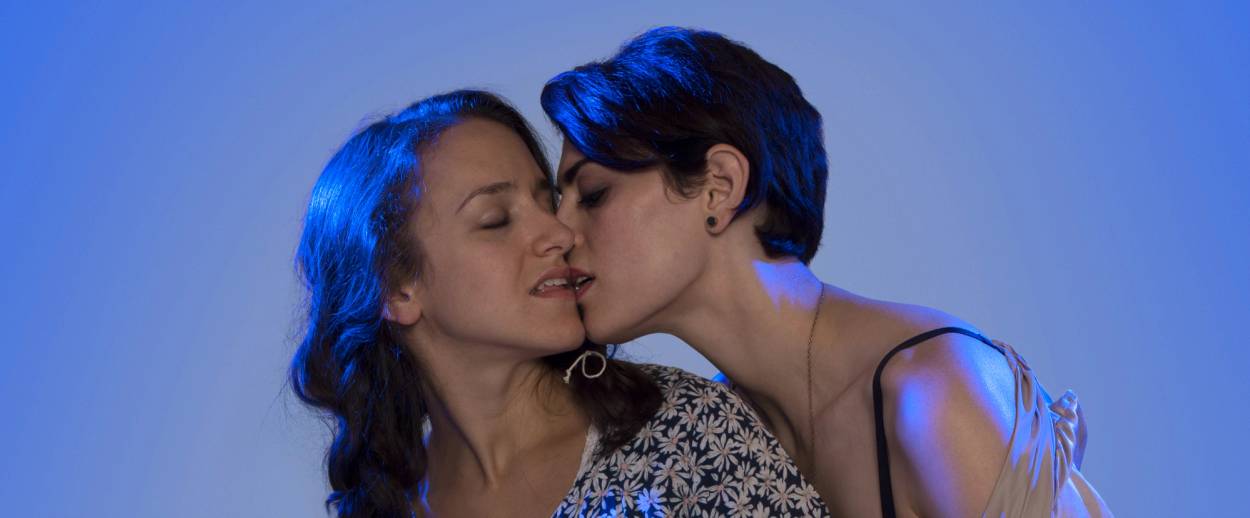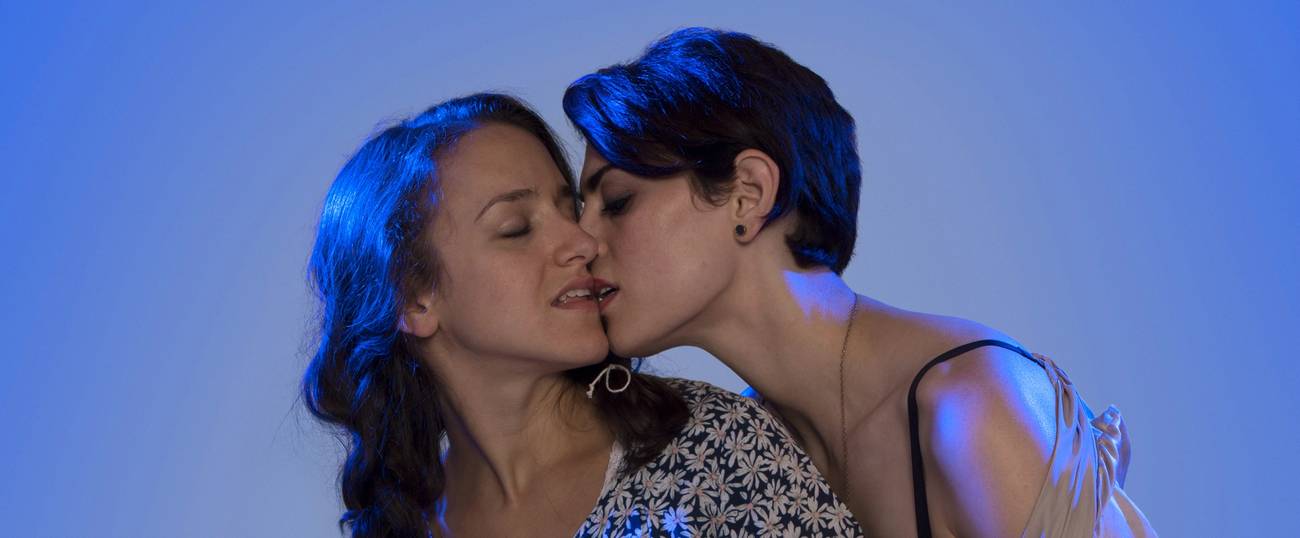Back with a ‘Vengeance’
A new revival of Sholem Asch’s controversial Yiddish classic ‘God of Vengeance’ is both timely and timeless




Midway through the thoroughly engrossing revival of God of Vengeance, now playing at New York’s La MaMa Theatre though Jan. 22, brothel owner Yankl Tchaptchovitch stands downstage discussing plans for the future with his wife, Soreh, as their teenage daughter, Rivkele, sits behind them, zoning out. In a small but telling sign of how the show’s producers have chosen to approach Sholem Asch’s 1907 play, the girl slips on a very 21st-century pair of over-the-ear headphones.
The message is clear: This is no period piece. The production is relevant, timely—alive. And the timing isn’t a complete accident. After a successful off-Broadway run last year, a play about Asch’s play, Paula Vogel and Rebecca Taichman’s Indecent, is slated to open on Broadway in April. And so, as Indecent prepares to offer audiences the story’s grand sweep—it follows God of Vengeance from its earliest beginnings to the Lodz Ghetto, with special focus on an explosive 1923 production that featured what is believed to be Broadway’s first lesbian kiss—the New Yiddish Rep has returned to the source. (The play is performed in Yiddish with English supertitles.)

Like a Tony Soprano of the tenements, Yankl is a well-off crook hungry for redemption, respect, and a good match for his daughter. To this end, on the advice of Reb Eli (winningly played by Yiddish Rep Artistic Director David Mandelbaum), Yankl commissions a new Torah scroll, but, as can only be expected, things don’t quite work out as he’d hoped. Honor eludes him, business associates betray him, and his daughter is lured into the very demimonde from which he’d tried to shield her.
With his rages and newfound religious zeal, Yankl, while not an unsympathetic character, can still be a lot to take. Like many a sinner turned saint, he becomes a little too holy for his own—or anyone else’s—good. But the bass notes of his performance are set off nicely by Reb Eli’s sweet pragmatism. It’s not hard to picture a staging in which the rabbi is more of an unctuous money-grubber, who, for the right price, can turn a blind eye to any sin, but that doesn’t seem to be what the New Yiddish Rep was shooting for. A similar dynamic is at work in the romance between Rivkele and the prostitute Manke. Though played here as something very tender, there is clearly also room in the play for a more sinister sort of seduction.
The play isn’t just about pious striving and illicit love. It works in a lighter register, too. Early in the play, Yankl is looking to have some people over to celebrate the Torah he’s commissioned, but no one of note will take him up on the invitation, so he’s reduced to inviting over the local riffraff. Among the motley crew that shows up is woman wearing an eye patch. It’s a simple gag—a sight gag—but it works.
To say that the play is performed in Yiddish is a kind of oversimplification; it’s more like five or six different kinds of Yiddish. Eleanor Reissa, who plays Soreh and who also directed the play, is Yiddish theater royalty. Shane Baker (Yankl) grew up Episcopalian in Kansas City and more or less stumbled into the world of Yiddish theater by chance. Caraid O’Brien, who plays the lead prostitute, Hindl, came to Yiddish through a still more circuitous route, beginning with the nuns who introduced her to Jewish literature in her native Ireland. Three of the play’s actors—Melissa Weisz (Manke), Luzer Twersky (a sleazy pimp), and Eli Rosen, who plays a dignified Torah scribe—are lapsed Hasidim. Though all speak Yiddish with ease, the language they grew up speaking was hardly that of brothels and prostitutes. Then, in yet another category, is an actress like Shayna Schmidt (Rivkele), who grew up hearing Yiddish but only recently became comfortable enough with the language to start using it herself.
But in truth, even in its heyday, New York’s Yiddish stage was something of a cacophony. With its mix of established Americans and newly-arrived greenhorns—immigrants from Russia, Poland, Romania, Lithuania, and beyond—it’s always been a meeting place for discordant voices. Maybe that’s why it’s still around.
Related: The Ventriloquist
VoxVault: A Year of Firsts
Gabriel Sanders is Tablet’s director of business development.